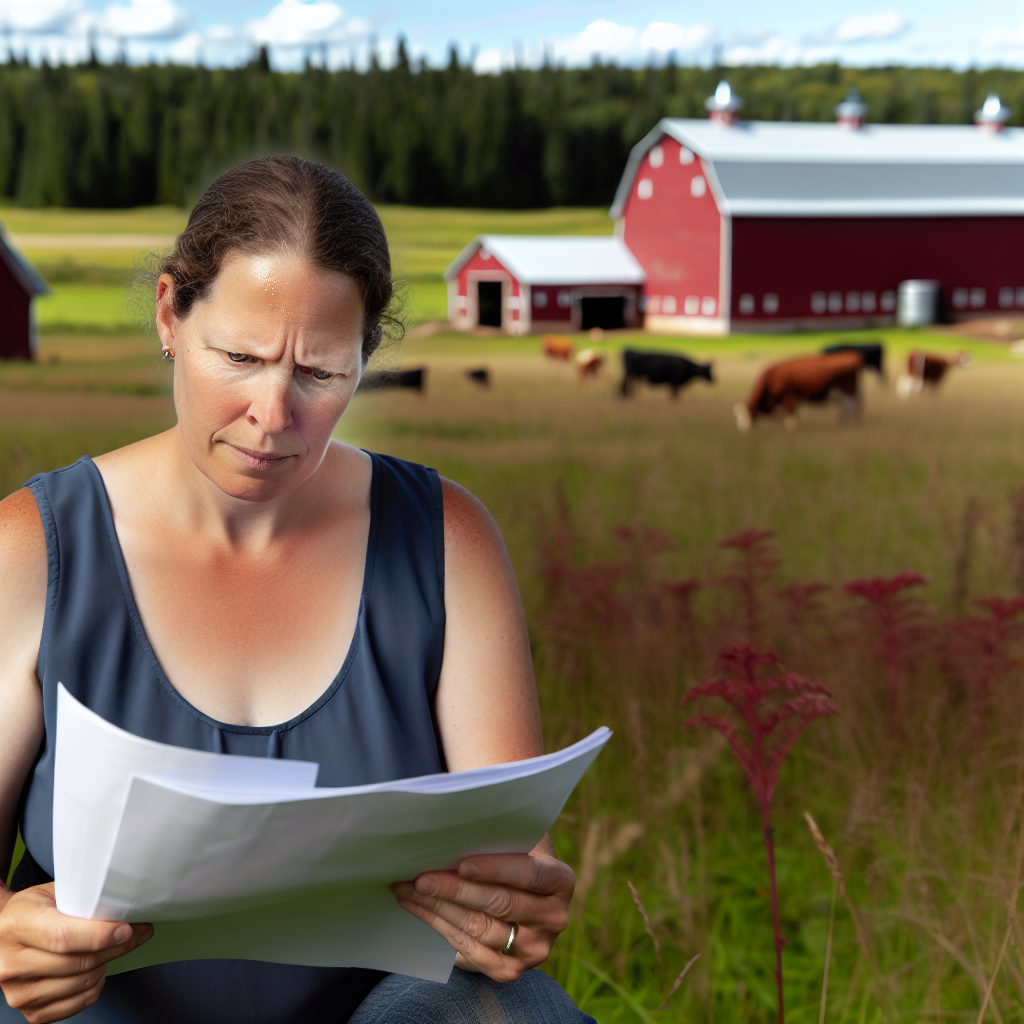Introduction to Zoning Laws
Definition of Zoning Laws
Zoning laws regulate land use in specific areas.
They define what activities can occur on a property.
These laws help maintain order and safety in communities.
Importance of Zoning Laws for Family Farms
Zoning laws protect family farms from incompatible developments.
They ensure that farming activities are conducted legally.
This compliance creates a stable environment for agricultural operations.
Types of Zoning Regulations
There are various types of zoning regulations.
These can include agricultural, residential, and commercial zones.
Each zone has specific rules governing land use.
Benefits of Following Zoning Laws
Compliance with zoning laws offers numerous benefits.
It promotes community safety and well-being.
Additionally, it helps preserve rural character.
Furthermore, adherence can enhance property values.
Types of Zoning Regulations Affecting Family Farms
Overview of Zoning Regulations
Zoning regulations control land use within specified areas.
They aim to protect community welfare and promote orderly development.
Transform Your Agribusiness
Unlock your farm's potential with expert advice tailored to your needs. Get actionable steps that drive real results.
Get StartedThese regulations define what activities are permissible on agricultural land.
Types of Zoning Classifications
Zoning classifications typically include agricultural, residential, and commercial categories.
Each classification carries distinct rules and restrictions.
For instance, agricultural zoning supports farming operations and associated activities.
Residential zoning limits development to homes and related structures.
Commercial zoning permits businesses to operate but may restrict agricultural use.
Permitted and Conditional Uses
Permitted uses are activities allowed by right under zoning laws.
These uses include traditional farming, livestock operations, and crop production.
Conditional uses require additional review and approval from local authorities.
This process considers factors like environmental impact and community interest.
Examples of conditional uses include agritourism and on-site retail sales.
Setback Requirements
Setback requirements dictate the minimum distance between structures and property lines.
These regulations ensure safety and protect neighboring properties.
Family farms must comply with specific setback standards to avoid penalties.
Understanding these requirements helps avoid conflicts with local zoning boards.
Special Use Permits
Special use permits allow variations from standard zoning regulations.
Farmers seeking to engage in non-traditional activities may apply for these permits.
Examples include hosting events or establishing a farm stand.
Applicants must demonstrate how their activities benefit the community and comply with regulations.
Enforcement and Compliance
Local governments enforce zoning regulations through various mechanisms.
Violations may lead to fines, legal actions, or forced cessation of activities.
Farmers should maintain an awareness of local zoning changes and updates.
Regular communication with zoning officials can provide guidance on compliance.
Steps to Ensure Zoning Law Compliance for Family Farms
Understand Local Zoning Regulations
Begin by researching local zoning laws relevant to your area.
Showcase Your Farming Business
Publish your professional farming services profile on our blog for a one-time fee of $200 and reach a dedicated audience of farmers and agribusiness owners.
Publish Your ProfileConsult your city or county’s planning department for specific information.
Make note of any regulations concerning land use and agricultural activities.
Additionally, identify any restrictions related to livestock and farm structures.
Understanding these regulations is crucial for compliance.
Assess Your Farm’s Current Zoning Status
Next, evaluate your farm’s existing zoning classification.
Check if your current activities align with that classification.
If discrepancies arise, consult zoning maps available from local authorities.
Moreover, consider seeking professional help if necessary.
Apply for Necessary Zoning Permits
If your farming activities fall outside permitted uses, apply for a zoning permit.
Prepare all necessary documentation to support your application.
Include details about your proposed activities and their benefits.
Transparency in your application increases approval chances.
Participate in Community Meetings
Engage with community boards or zoning commissions.
Your participation demonstrates community involvement and commitment.
Attend meetings to understand community concerns about farming practices.
Addressing these concerns may build support for your zoning requests.
Stay Informed on Changes to Zoning Laws
Regularly check for updates or amendments to local zoning laws.
Join local agricultural organizations for updates and networking opportunities.
Being proactive in understanding regulations will keep you compliant.
Furthermore, consider subscribing to local government newsletters.
Uncover the Details: Understanding Tax Breaks for Farmers
The Role of Local Government in Enforcing Zoning Laws
Understanding Zoning Laws
Zoning laws regulate land use within a municipality.
These laws determine what activities can occur in specific areas.
Local governments establish zoning ordinances to promote orderly development.
Local Government Responsibilities
Local governments enforce zoning laws through various activities.
They review land use applications to ensure compliance.
Moreover, local authorities conduct inspections to assess ongoing practices.
If violations occur, they take appropriate actions to rectify them.
Permitting Process
The permitting process is crucial for land development.
Landowners must obtain permits before starting new projects.
Local officials evaluate permits based on existing zoning regulations.
This evaluation helps maintain community standards and safety.
Community Involvement
Community input plays an important role in zoning enforcement.
Local governments often hold public meetings to discuss new zoning proposals.
These meetings provide residents opportunities to voice their concerns.
Active community participation ensures transparency in decision-making.
Challenges in Enforcement
Enforcing zoning laws presents unique challenges for local governments.
Limited resources can hinder the ability to monitor compliance effectively.
Additionally, conflicting interests among residents can complicate enforcement efforts.
Local governments must balance these interests while upholding regulations.
Showcase Your Farming Business
Publish your professional farming services profile on our blog for a one-time fee of $200 and reach a dedicated audience of farmers and agribusiness owners.
Publish Your ProfileLegal Framework and Procedures
Local governments operate under state laws regarding zoning enforcement.
Procedures vary across jurisdictions but typically involve specific steps.
This framework helps ensure consistent enforcement across areas.
Compliance with these frameworks can improve public trust in government.
See Related Content: Navigating Trade Agreements in Farming
Impact of Non-Compliance
Consequences for Family Farms
Non-compliance with zoning laws leads to serious consequences for family farms.
Farmers risk losing their property rights when they violate local regulations.
This situation may undermine the sustainability of their farming operations.
Furthermore, non-compliance can severely affect a farm’s financial health.
Farmers may face increased costs due to fines and legal battles.
Penalties Imposed by Authorities
Local authorities often impose various penalties for zoning violations.
Fines vary based on the severity of the violation.
In many cases, agencies impose daily fines for ongoing non-compliance.
Consequently, this can quickly add up, creating a significant financial burden.
Potential Legal Actions
Local governments can initiate legal actions to enforce compliance.
Such actions may include seeking injunctions to halt farming activities.
In extreme cases, authorities may proceed with land use changes.
This change could prevent continued agricultural use of the land.
Damage to Reputation
Non-compliance impacts a farm’s reputation within the community.
Farmers may find themselves ostracized by neighbors and local businesses.
Moreover, poor reputation can affect relationships with suppliers and customers.
Long-term Consequences
The long-term impact of non-compliance can be devastating.
Many family farms may struggle to recover from initial penalties.
This struggle often leads to decreased productivity and profitability.
Ultimately, non-compliance puts the future of family farms at risk.
Learn More: GMO Farming Regulations Farmers Need to Know

How to Apply for Zoning Variances: A Guide for Farmers
Understanding Zoning Variances
Before applying for a zoning variance, understand its purpose.
A zoning variance permits a landowner to use their property differently than existing zoning laws allow.
Farmers often need these variances due to unique agricultural needs.
This understanding guides you through the application process effectively.
Research Your Local Zoning Laws
Start by researching local zoning laws that affect your property.
Visit your county or city’s zoning office for official documentation.
Pay attention to specific restrictions related to agricultural activities.
Note any recent amendments to these laws that may impact your application.
Next, consult with local agricultural extension offices for insights.
Gather Necessary Documentation
Efficient documentation is crucial for a successful variance application.
Begin with a copy of your property deed and zoning designation.
Then, prepare a site plan detailing current and proposed land uses.
Include photographs of your farm and the surrounding area.
Last, gather data demonstrating the need for the variance, like crop types.
Showcase Your Farming Business
Publish your professional farming services profile on our blog for a one-time fee of $200 and reach a dedicated audience of farmers and agribusiness owners.
Publish Your ProfileSubmit Your Application
After compiling your documentation, complete the variance application form.
Include all necessary supplementary materials you’ve gathered.
Submit your application to the appropriate zoning authority.
Additionally, check if there’s a filing fee and when to pay it.
Attend the Zoning Hearing
Upon submission, prepare for a zoning hearing where your case will be reviewed.
Clearly present your reasons for needing the variance during this hearing.
Bring visual aids to illustrate your points effectively.
Moreover, anticipate questions from zoning board members.
Follow Up on Your Application
After the hearing, wait for the board’s decision regarding your request.
If granted, understand the conditions tied to the variance.
Should your application be denied, explore your options for appeal.
Maintaining open communication with the zoning board can be helpful.
Always document communications for future reference.
Uncover the Details: Biotechnology Compliance Tips for Successful Farming
Community Engagement: Working with Neighbors to Address Zoning Issues
Establishing Open Communication
Open communication forms the basis of good relationships with neighbors.
Start by introducing yourself and your farm to the community.
Host a casual meeting and provide updates about your farming practices.
Encourage feedback from neighbors and express appreciation for their input.
Understanding Community Concerns
Identify and listen to the concerns your neighbors may have.
Respect their opinions, even if they differ from your own.
Common concerns often include noise, traffic, and land use.
Empathize with their feelings and acknowledge their worries.
Developing Collaborative Solutions
Work together to find solutions that address mutual concerns.
Consider forming a community advisory group focused on zoning issues.
This collaboration can help foster trust between you and your neighbors.
Gather ideas and suggestions to improve living conditions for everyone.
Educating the Community
Educate your neighbors on zoning laws and farming practices.
Share how these regulations support both farming and community interests.
Host workshops showcasing sustainable farming techniques and practices.
Involve local experts to provide credible information.
Implementing Feedback
Take actionable steps based on the feedback received from neighbors.
Share your plans on how you aim to lessen negative impacts.
Regular updates can help reassure the community of your commitment.
Ensuring consistent dialogue demonstrates that you value their input.
Building Long-Term Relationships
Maintain ongoing communication even after resolving issues.
Invite neighbors to community events held at your farm.
Provide them with opportunities to engage with your agricultural practices.
Strong relationships can lead to a supportive community around your farm.
Future Trends in Zoning Laws and Their Implications for Family Farms
Shifts Towards Sustainable Practices
Zoning laws are increasingly prioritizing sustainability in agriculture.
Regulations now encourage or mandate eco-friendly farming methods.
Showcase Your Farming Business
Publish your professional farming services profile on our blog for a one-time fee of $200 and reach a dedicated audience of farmers and agribusiness owners.
Publish Your ProfileThis shift promotes conservation and responsible resource use.
Family farms can benefit from adopting these sustainable practices.
Increased Local Governance
Local governments are gaining more authority over zoning decisions.
This trend allows for tailored regulations that meet community needs.
Consequently, family farms may experience both support and challenges.
Community input can influence zoning outcomes significantly.
Integration of Technology in Zoning Enforcement
Technology is playing a significant role in zoning law enforcement.
Data analytics and remote sensing help monitor compliance effectively.
This innovation can reduce the burden on local zoning boards.
Family farmers are encouraged to stay updated on technological trends.
Adaptive Zoning Approaches
Many regions are adopting flexible zoning codes for agriculture.
These adaptive approaches can facilitate diverse farming operations.
Family farms can explore new business models under this flexibility.
Such options may include agritourism and direct-to-consumer sales.
Collaborative Zoning Initiatives
Collaboration between farmers and local authorities is becoming essential.
These initiatives can create zoning regulations that benefit all parties.
Family farms have the opportunity to actively participate in these discussions.
Such collaboration fosters a sense of community ownership in agricultural planning.
Potential Challenges Ahead
Despite positive trends, challenges remain for family farms.
Heightened regulations may lead to increased operational costs.
Compliance with new standards can strain small farming operations.
Staying informed and proactive will be vital for success.




